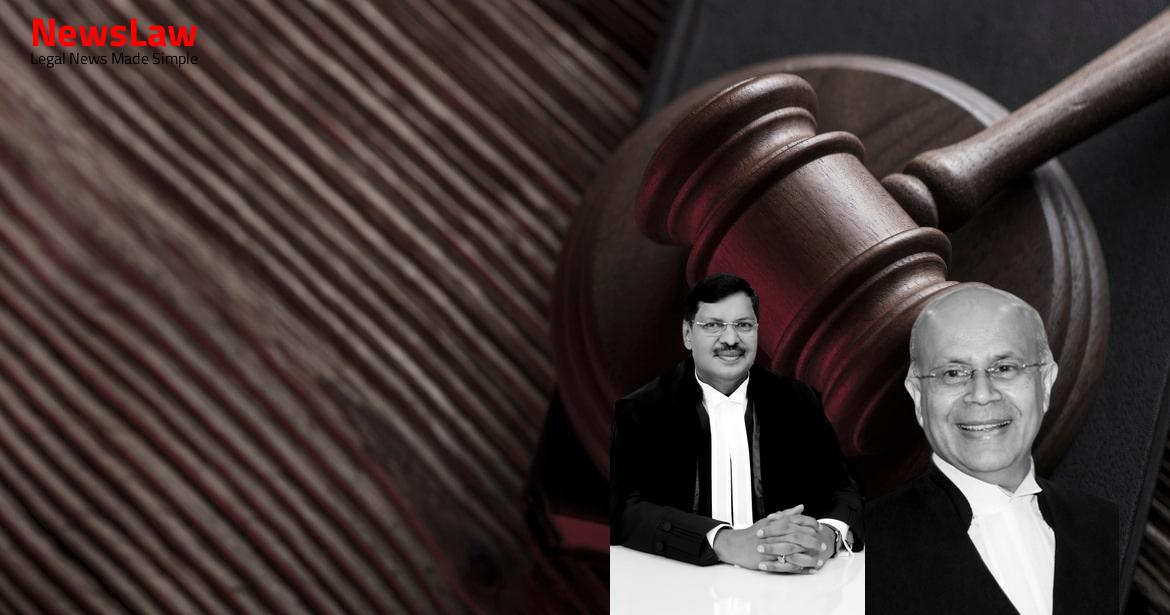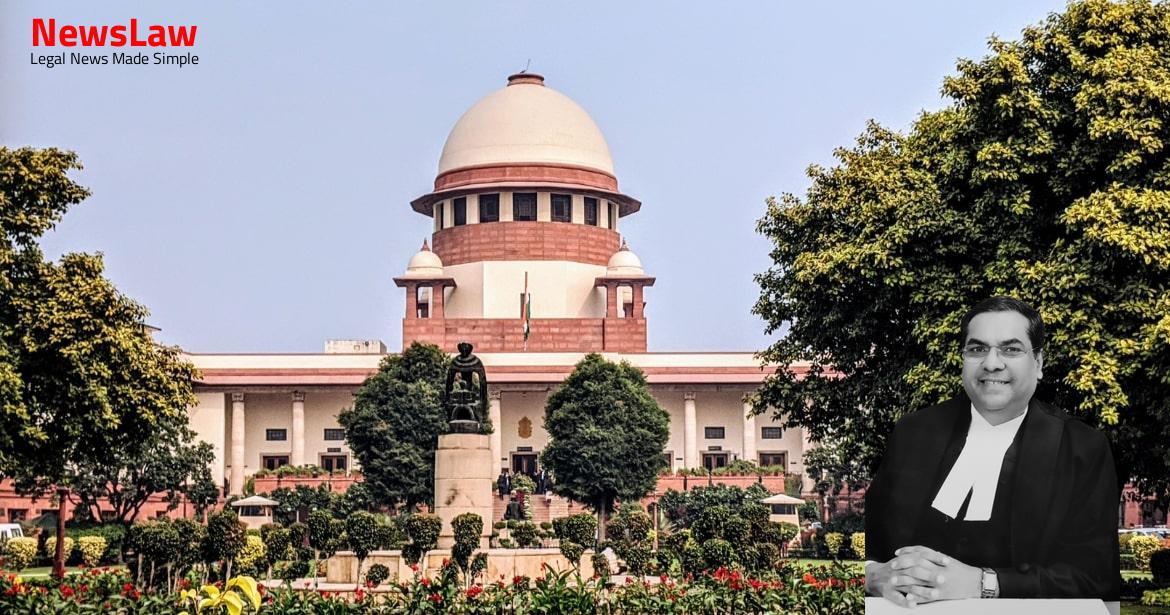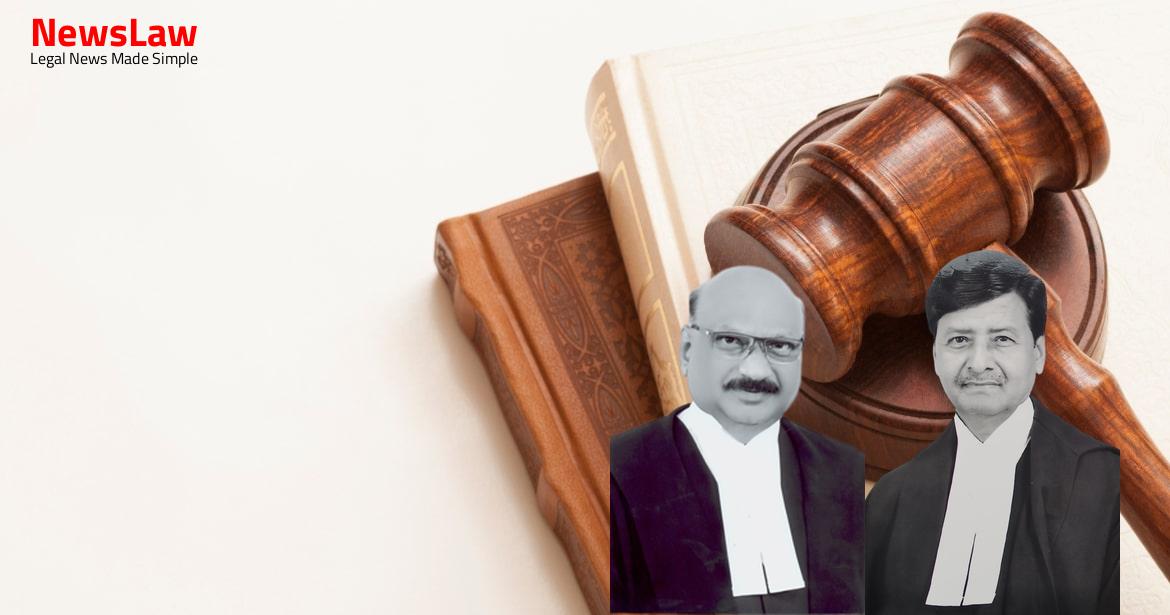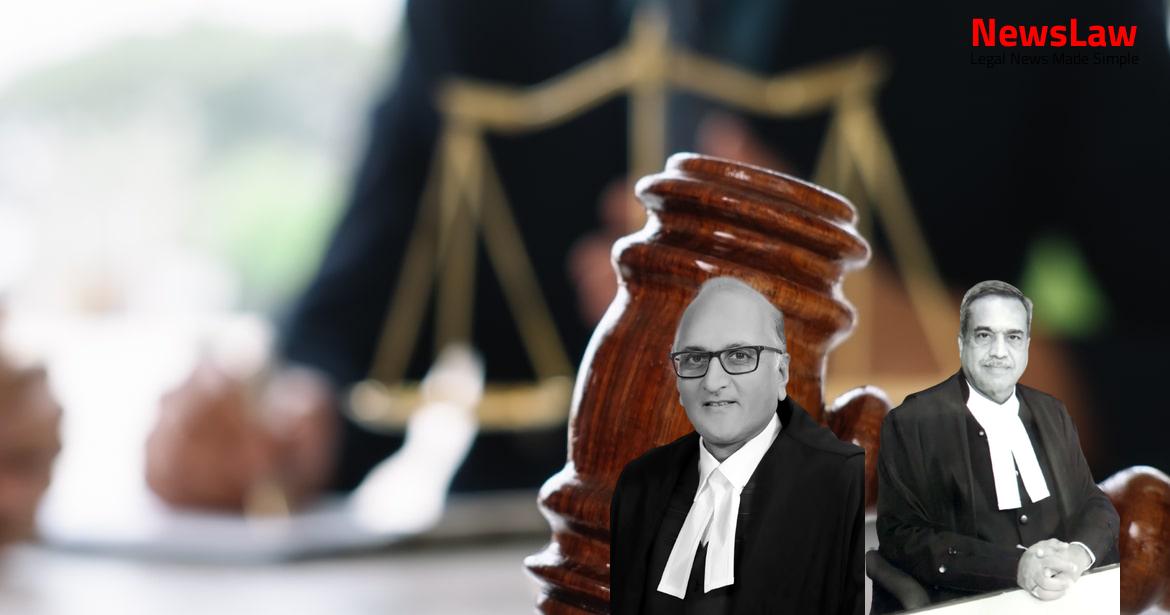A significant legal case involving a dispute over land ownership and the correction of revenue records was recently decided by the Supreme Court. The case revolved around the ownership of lands received by the Deity through the Pujaris from Syed Mohammad Ali, Manager of the landlord Hakim in Village Kharsod Kalan, District Ujjain. The court’s judgment sheds light on the proper procedures to be followed in such cases and the importance of maintaining accurate land records. Read on to understand the details of this important ruling.
Facts
- The suit was filed by the Deity through the Pujaris claiming ownership of the lands received from Syed Mohammad Ali, Manager of the landlord Hakim in Village Kharsod Kalan, District Ujjain.
- The correction made in the land records in 1979-80, changing the collector to ‘Manager’, was found to be in violation of the prescribed procedure in the Madhya Pradesh Land Revenue Code 1959.
- The Deity had peaceful possession and enjoyment of the lands over a long period.
- The Pujaris had no right to claim ownership of the temple lands, as they were only ‘Pujaris’ and not owners.
- The temple was situated on government land belonging to the Aukaf Department and was a ‘Devsthani Muafi’.
- The Pujaris did not lay any claim to ownership of the lands in them and continued to perform puja and enjoy the usufructs of the lands as per the income of the temple.
- The revenue records were corrected by recording the name of the collector as ‘Vyawasthapak’ for better management of temple properties.
Also Read: Judicial Standards and Compulsory Retirement Case: Supreme Court of India Judgment
Analysis
- The appellant did not claim that the plaintiff Temple was recorded in the public temples list of 2013 for the District of Ujjain.
- The Deity’s name appeared in revenue entries for the years 1969-70, 1970-71, and 1972-73, not having taken land on lease from the Government but the previous owner.
- Similar is the situation with revenue entries from 1973 to 1977.
- The correction in revenue entries in 1979-80 was not carried out in compliance with Section 115 of the Code.
- Concurrent findings by both the First Appellate Court and the High Court stated that due procedure was not followed in the correction of revenue records, leading to an unsustainable claim of the Temple as a public temple with the Collector as its Manager.
- Ramesh Das (supra) was distinguished as it involved a claim for a private temple where ownership was not asserted in the name of the Deity but in those physically possessing the lands.
- Sub-Divisional Officer can correct any wrong or incorrect entry in land records upon his own motion or on application of an aggrieved person
- Corrections must be authenticated by the Sub-Divisional Officer
- Sanction from the Collector is required for correction of entries prior to five years
- Tahsildar must provide a written report and all interested parties must be given a hearing before passing any order
- If the interest of the Government is involved, the case must be submitted to the Collector for decision
- The appeal of the respondents succeeded on the substantial question of law No.2.
- The entry in the revenue record could not have been changed by the Tahsildar without a proper enquiry and giving affected persons, namely the respondents, an opportunity.
- The judgment of the High Court can be sustained on the ground of the improper change in the revenue record.
Also Read: Justice Served: Acquittal Upheld in Pradhan v. State
Decision
- The concerned authority can follow the procedure under Section 115 of the M.P. Land Revenue Code, 1959 for further action.
- No merit found in the present appeal.
- The appeal is dismissed with observations similar to those mentioned.
- The appeal is dismissed with the aforementioned observations.
Also Read: Land Dispute Assault Case: High Court Sets Aside Acquittal Order
Case Title: STATE OF M.P. . Vs. MURTI SHRI CHATURBHUJNATH .
Case Number: C.A. No.-000956-000956 / 2010



